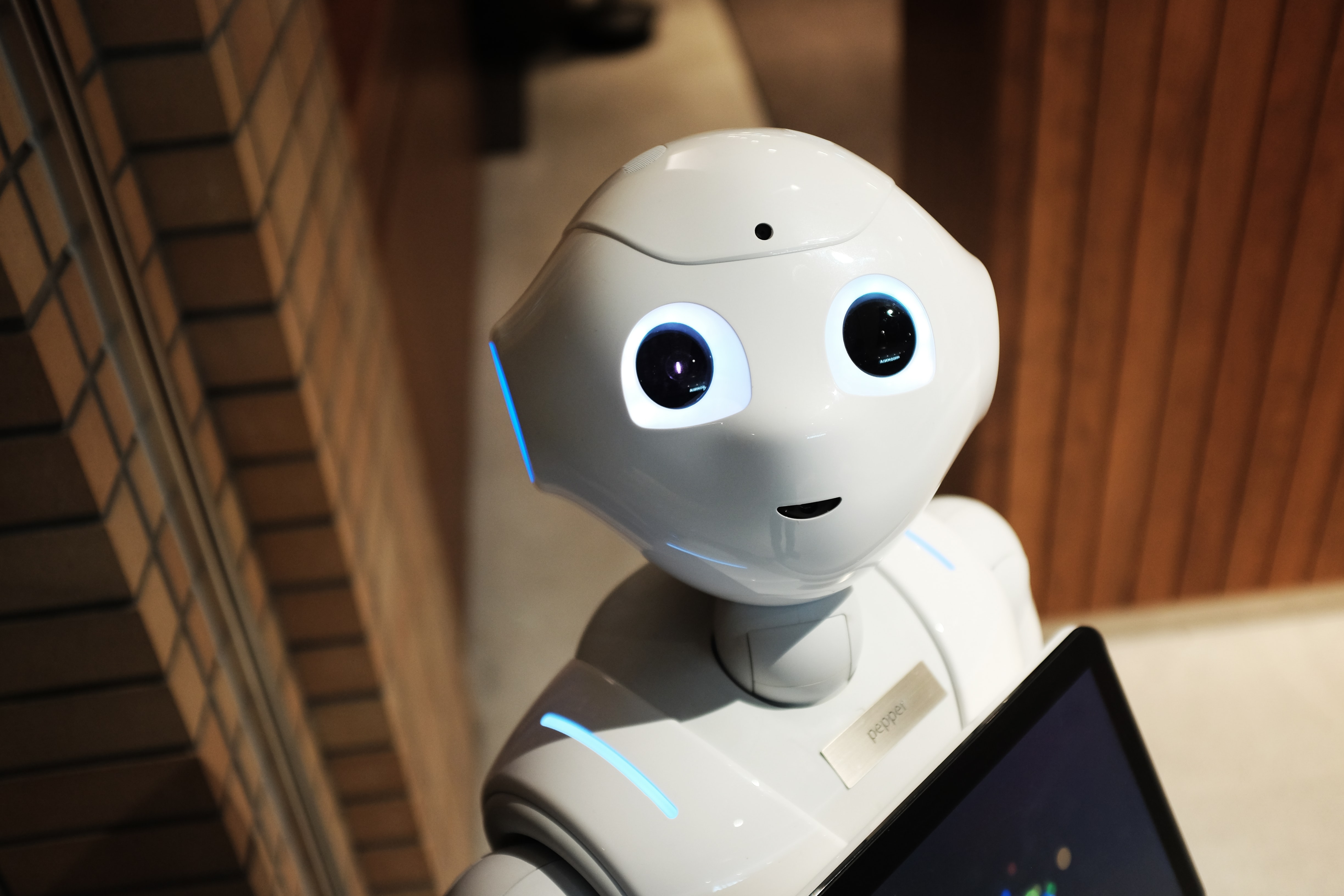What’s the use of AI in recruiting?
Artificial intelligence is predicted to reach mass adoption across many industries this year. In recruitment, emerging tools promise to improve the hiring process significantly. While top organisations desperately search for qualified candidates to fill empty positions, HR leaders must look towards new ways to improve the hiring process and win the talent war. Is AI the answer?
How is AI changing recruitment today?
Traditional recruitment methods aren’t perfect. It takes hours to write job descriptions, evaluate CVs and schedule interviews - while screening and interviewing candidates is riddled with bias. Recruiters have big expectations for AI, which promises to streamline the process and reduce human bias.
Many recruiters are already using AI tools to assist with labour-intensive tasks such as identifying potential candidates, screening CVs, scheduling interviews and automating communication. In-house HR professionals and hiring managers will follow suit in the next few years.
“1 in 4 organizations plan to start using or to increase their use of automation or AI in recruitment and hiring over the next five years”. - Society for Human Resource Management, 2022
The four main uses of AI in recruitment
Let’s look at some of the ways AI is being used in recruitment today:
Advertising jobs
Emerging technology like ChatGPT - an AI-driven chatbot that produces human-quality responses - can help recruiters advertise jobs faster. ChatGPT is used to write job descriptions, create attention-grabbing headlines for social media, and optimize job postings for search engines using keywords and phrases relevant to the job and the industry. The benefits? When used as a writing assistant, this AI tool can save time and resources and increase the number of job applications.
Sourcing and screening candidates
AI can automate CV screening by processing large amounts of data quickly, increasing the speed of finding the right candidate. AI algorithms can match candidates with job requirements based on skills, experience, and other criteria while also improving diversity by removing human bias from the screening process.
Not all algorithms are made equal, though. There are real concerns that algorithmic bias could lead to unfair screening and the exclusion of certain groups when recruiting. To minimize the risk, recruiters should take action to monitor and evaluate their systems for bias.
Nurturing and communication
AI technology can help craft personalized messages to candidates as they journey through the recruiting process - improving the chances of retaining their interest. It can also help recruiters automate repetitive tasks such as scheduling interviews. The benefits? By freeing up time, recruiters can focus on areas that require a more human touch, such as building relationships through 1-on-1 calls and delivering personalized feedback sessions.
Improving the quality of new hires
AI algorithms can improve match-making by analyzing candidate data and matching them to job requirements more accurately. When used in predictive analysis, AI can also increase the chances of finding a long-term hire by identifying patterns in hiring data and making predictions about the likelihood of a candidate being a good fit.
The pros and cons of AI recruitment technology
AI can give companies the edge, but some challenges still exist. Top recruiters know when to go all-in on AI and where the hiring process still needs a human touch.
The pros of using AI in the recruitment process include:
- Increased efficiency: AI can automate repetitive tasks, reducing the time and effort required to fill a role
- Improved accuracy: AI algorithms can match candidates to job requirements more accurately, leading to better-fit hires
- Enhanced diversity: AI has the potential to reduce human bias by offering processes that attempt to keep it in check
- Reduced time-to-hire: AI can streamline the recruitment process, reducing the time it takes to fill a role
- Better candidate experience: AI can automate communication with candidates, keeping them informed and engaged throughout the recruitment process while freeing up the recruiter’s time for relationship building
The cons of using AI in the recruitment process include:
- Algorithmic bias: AI systems can perpetuate existing biases and reinforce inequalities
- Lack of human interaction: AI tools lack the empathy and interpersonal skills necessary to build strong relationships with candidates - top recruiters only shine when they get the right balance
- Lack of transparency: AI tools can make it challenging for recruiters to see how decisions are made
- Legal and ethical concerns: The use of AI in recruitment raises legal and ethical considerations, such as privacy and data protection
AI in the future of recruitment
Talent acquisition plays a considerable role in maintaining an organisation’s ability to compete. Amid the Great Resignation, top employers should consider how AI tools could improve their recruitment process. Still, AI recruitment tools are in their infancy and have many challenges to overcome. Leaders need to consider when these tools are helpful - and when they should outline the need for humans in the recruitment process.
Does your HR team need support? With Heron Talent as your recruitment partner, our consultants will help you navigate the talent shortage and find the qualified candidates your company needs to thrive. Get in touch today.

